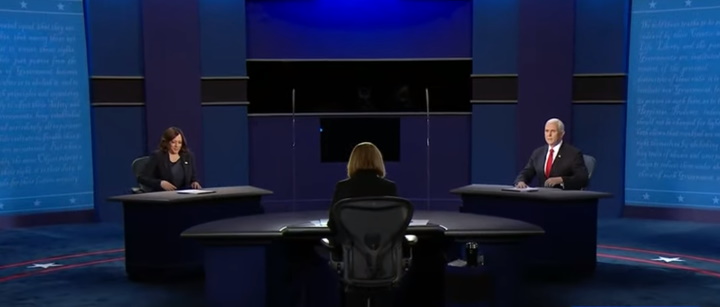Key Talking Points and Debates: Cbs Vice Presidential Debate

The vice presidential debate focused on a range of critical issues facing the nation, providing voters with insights into the candidates’ policy positions and approaches to governance. The debate showcased stark contrasts in viewpoints, particularly on economic recovery, healthcare, and foreign policy.
Economic Recovery and Jobs, Cbs vice presidential debate
The candidates presented distinct visions for stimulating economic growth and creating jobs. The debate highlighted the importance of addressing the ongoing economic crisis, with both candidates emphasizing the need for a robust recovery plan.
- Candidate A emphasized the importance of government investment in infrastructure, clean energy, and education as key drivers of economic growth. They argued that these investments would create jobs, boost innovation, and enhance long-term competitiveness.
- Candidate B focused on tax cuts for businesses and individuals, deregulation, and free trade agreements as the primary tools for economic growth. They argued that these policies would unleash the private sector’s potential, leading to increased investment and job creation.
The candidates also debated the role of government in addressing income inequality.
- Candidate A proposed raising the minimum wage, expanding access to affordable healthcare, and investing in job training programs to reduce income disparities.
- Candidate B argued that policies promoting economic growth, such as tax cuts, would ultimately benefit all Americans, including those in lower-income brackets.
Healthcare
The debate explored the candidates’ stances on healthcare reform, a critical issue for many voters.
- Candidate A advocated for expanding access to affordable healthcare through a government-run public option and strengthening the Affordable Care Act. They argued that universal healthcare is essential for a healthy and productive society.
- Candidate B favored a market-based approach to healthcare, emphasizing individual choice and competition. They proposed repealing and replacing the Affordable Care Act with a system that provides tax credits and allows individuals to purchase insurance across state lines.
Foreign Policy
The candidates discussed their approaches to foreign policy, highlighting differences in their views on national security, international alliances, and the role of the United States in the world.
- Candidate A emphasized the importance of diplomacy, multilateralism, and international cooperation in addressing global challenges such as climate change, pandemics, and terrorism. They highlighted the need to strengthen alliances and work with allies to promote peace and security.
- Candidate B favored a more assertive and unilateral approach to foreign policy, emphasizing American leadership and national interests. They argued for a strong military presence, increased defense spending, and a willingness to use force when necessary to protect American security.
The CBS vice presidential debate provided a platform for Kamala Harris and Mike Pence to articulate their stances on a range of critical issues, including public health. The debate occurred against the backdrop of a contentious national discussion about mask mandates, as exemplified by the recent Nassau County ban on masks , which has sparked significant debate regarding individual liberties and public safety.
This ongoing dialogue surrounding mask policies undoubtedly influenced the tone and focus of the debate, as both candidates sought to address the concerns of a nation grappling with the complexities of a global pandemic.
The CBS vice presidential debate provided a platform for the candidates to showcase their policy positions and leadership styles. One notable figure, Mayor Tiffany Henyard, mayor tiffany henyard , has garnered attention for her progressive approach to urban revitalization, which could resonate with voters seeking innovative solutions to pressing issues.
The debate offered valuable insight into the candidates’ vision for the future, highlighting the importance of local leadership in shaping national policy.
